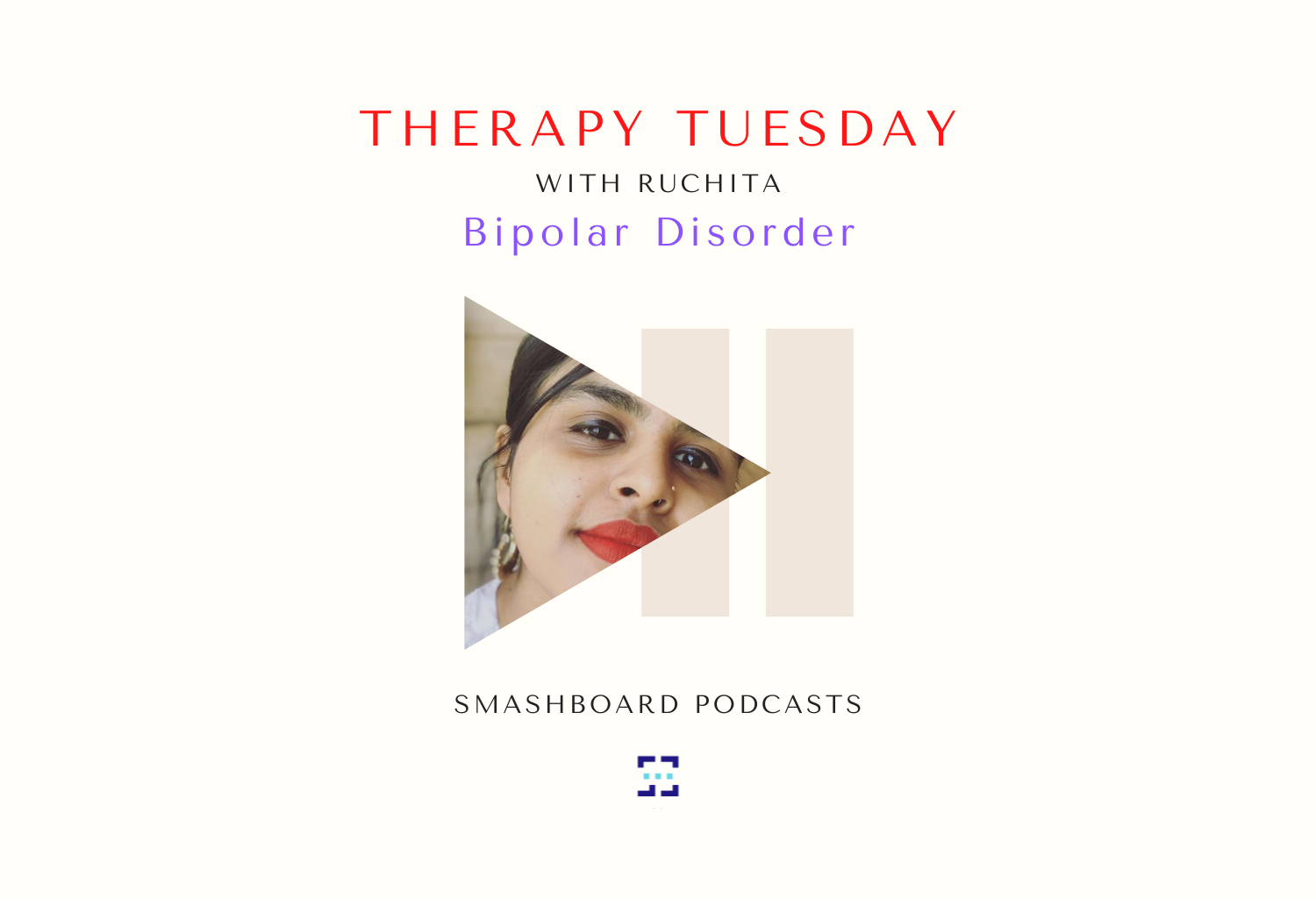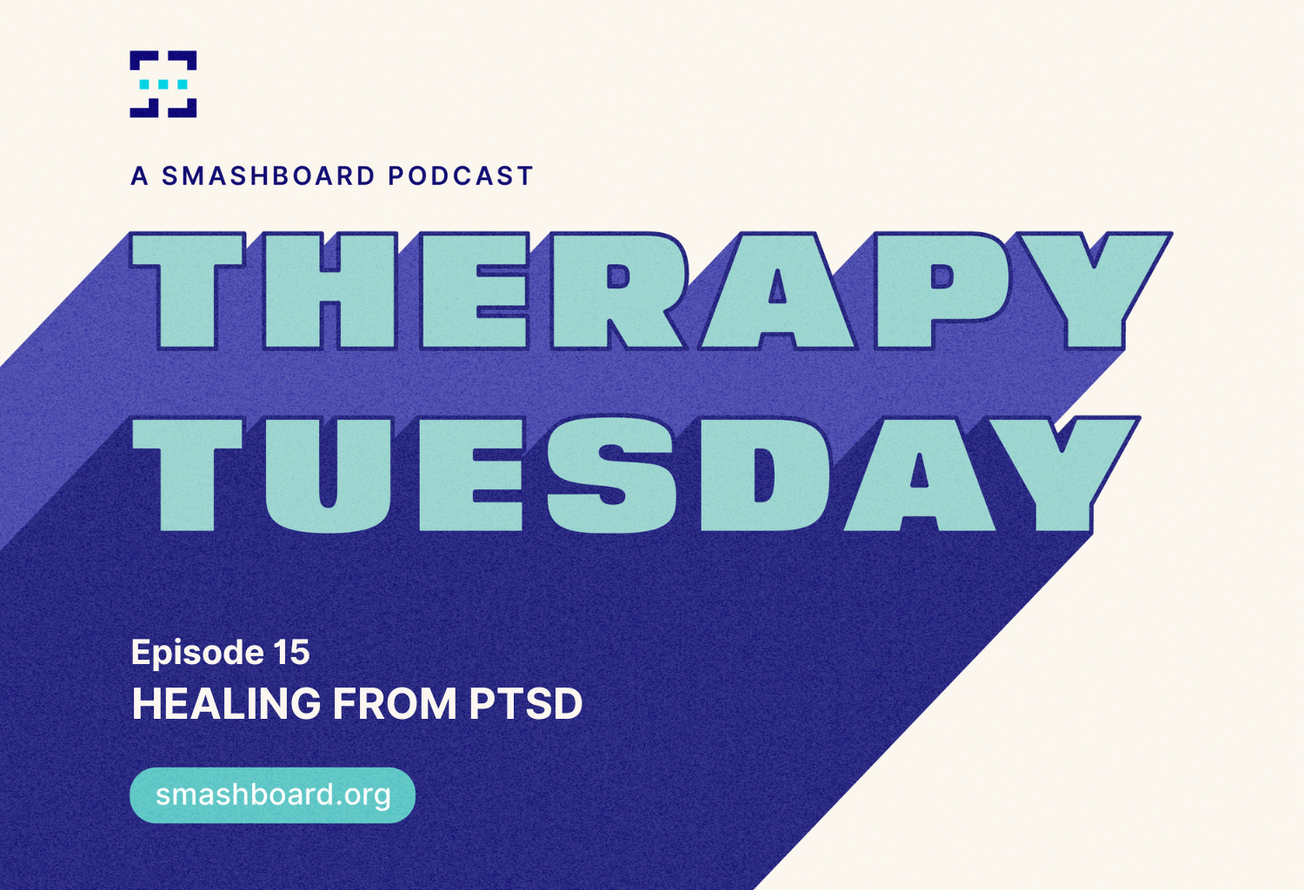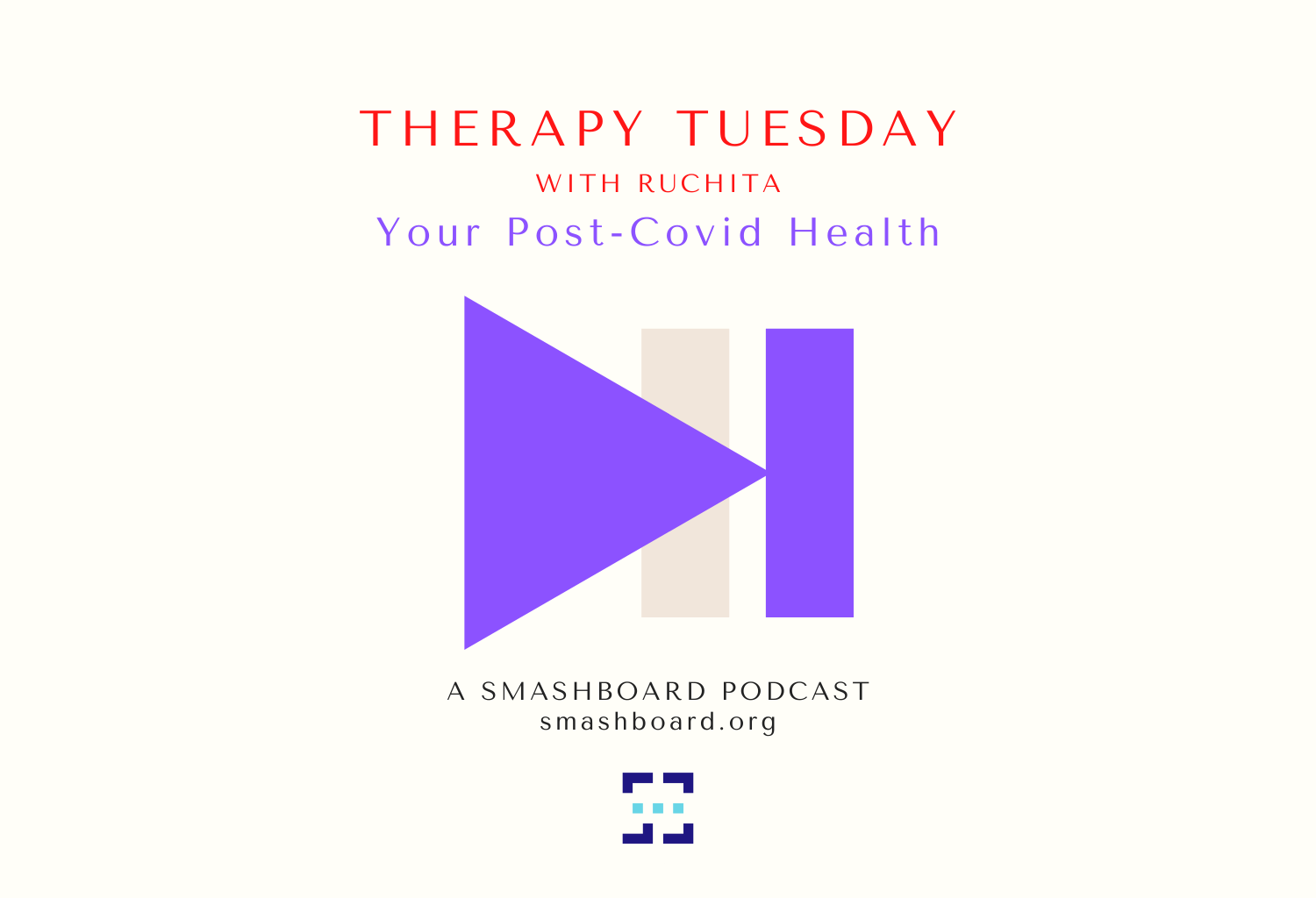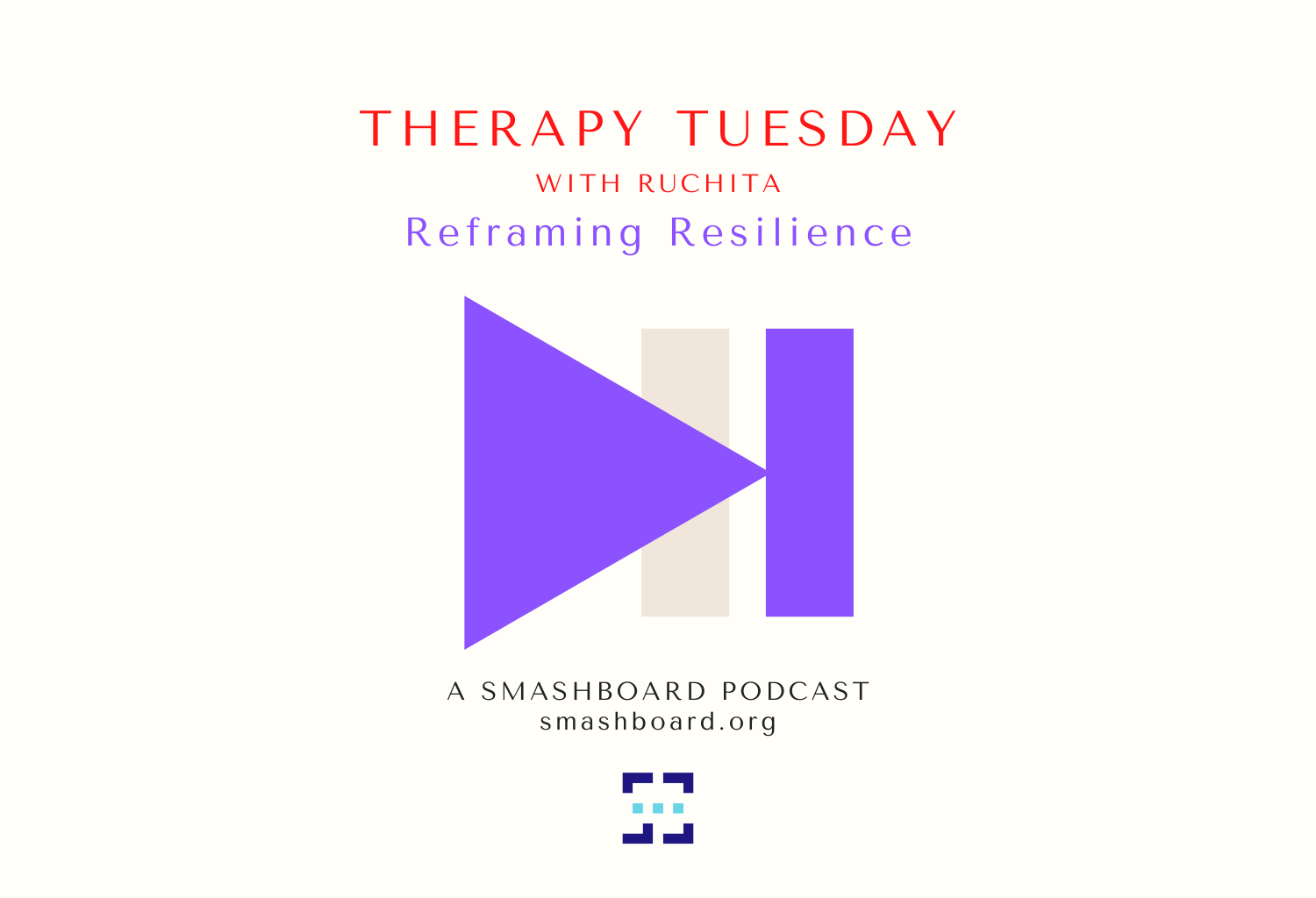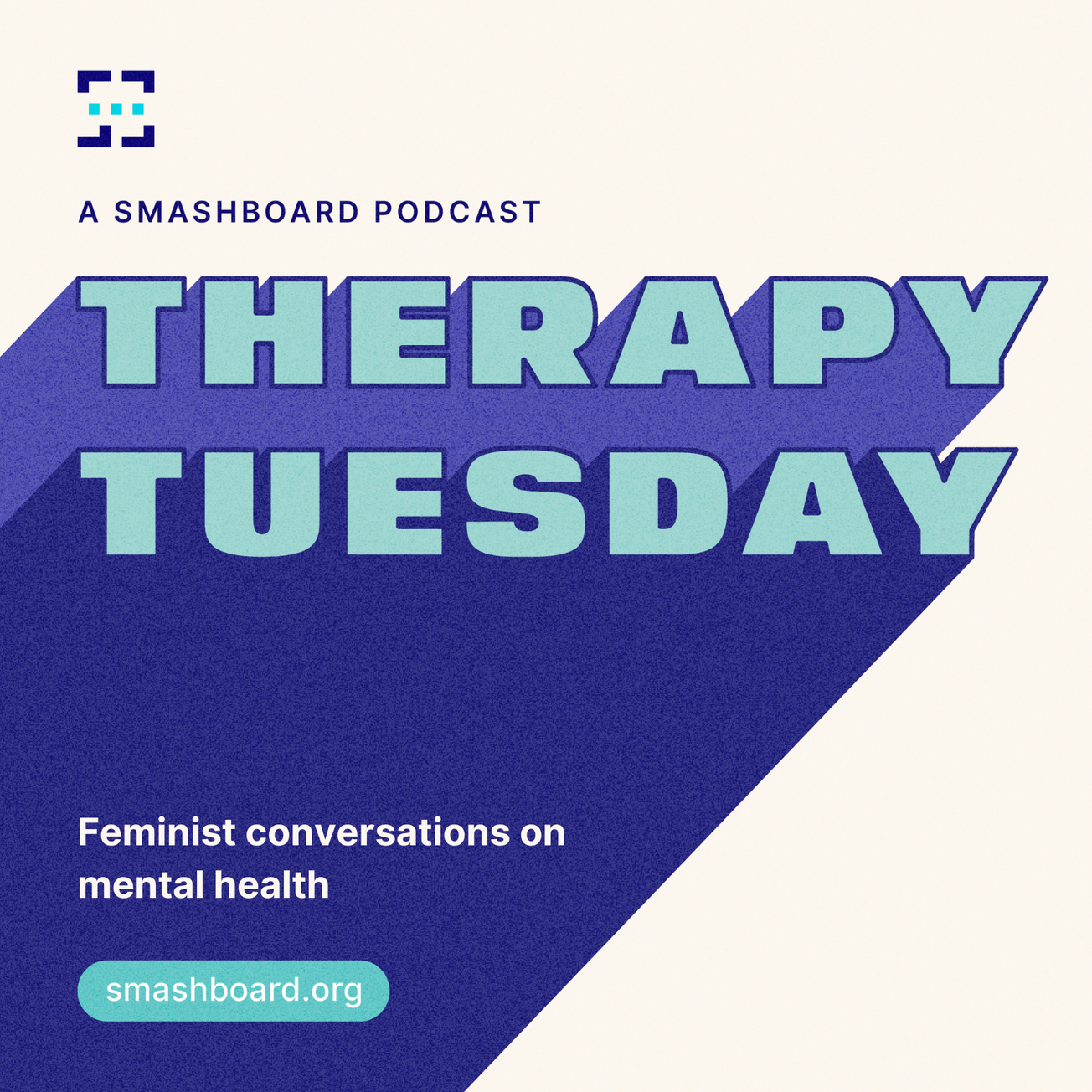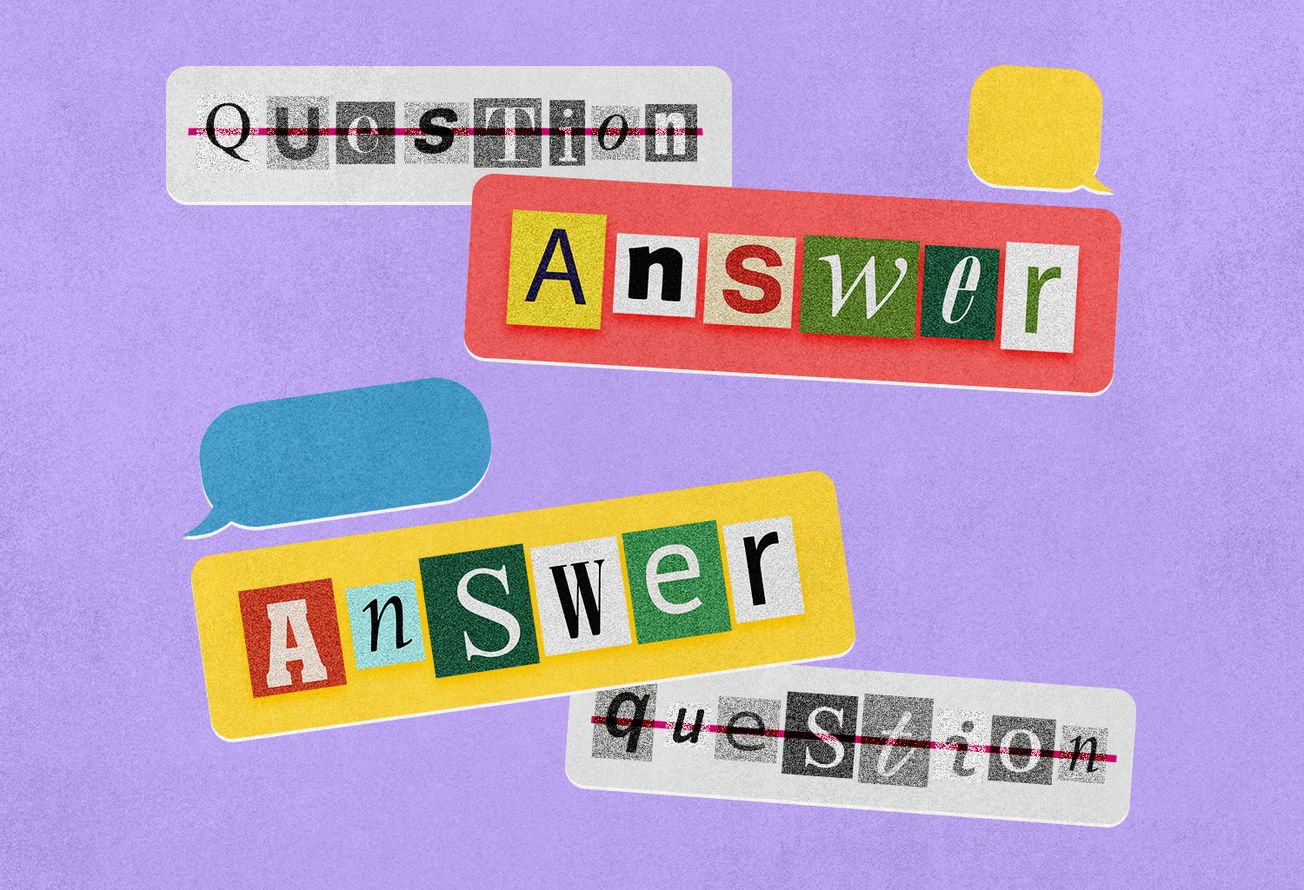Listen to our feminist mental health podcast on your favourite platform. Links here. Please do rate us! And give us a thumbs up/like/star. Have a great Tuesday!
Credits
Host: Ruchita Chandrashekar
Edit: Apurba Jyoti Borah
Audio Mix: Depot Records
Scroll down to the end for the full transcript.
ON SMASHBOARD'S WEBSITE
APPLE PODCASTS
FULL TRANSCRIPT OF THIS EPISODE:
Hi, this is Therapy Tuesday, Smashboard’s mental health podcast and I am your host Ruchita Chandrashekar. I am a behavioural health researcher and psychologist with a specialisation in trauma and post-violence recovery, and this podcast has been created for people who are looking to have conversations around mental health from a feminist perspective. Remember this podcast aims to be an educational resource and not a substitute for therapy or treatment. Often, when people have multiple mood swings, they start saying that they feel bipolar. They also start calling people bipolar if someone starts behaving erratically or if someone has aggressive tendencies. Since the term is so loosely used, not only do these statements spread misinformation; they're also responsible for furthering stigma about mental illness and bipolar disorder. Bipolar disorder is a mood disorder that is characterised by mania or hypomania and depression. Mania is the heightened state that's defined by hyperactivity, elevated energy levels and unreasonable euphoria. Some people may also experience hallucinations and delusions. It can cause people to have rapid speech, poor sleep, engage in risky sexual behaviors, risky spending habits, and even substance abuse. Hypomania has similar symptoms to mania but with lesser intensity and a shorter period of time. I knew someone who during a manic episode, would commit to making 4 presentations in 2 hours while functioning on 4 hours of sleep. The euphoria can be so elevating that sometimes people with bipolar disorder feel attached to that state of being. Each manic episode can also look different in its intensity and symptoms. Once a manic episode ends, the crash arrives, which is the depressive episode. The depressive episode can have low mood, low motivation, anxiety and irritability, fatigue and listlessness, difficulty with appetite and sleep. So a lot of the common tendencies we see with a depressive episode. Suicidality can be a risk with both the episodes, which is why a lot of treatment for bipolar disorder is focused on mood stabilization. Now it's far more difficult for people to accept and own a diagnosis of bipolar disorder because of the fear and derision associated with specific diagnoses - think schizophrenia and personality disorders. Bipolar disorder is also placed in the same category that is defined by violence and aggression in culture and the media. The other end of the stereotype is the assumption that people with bipolar disorder can't be stable with relationships, they can't hold a job, they can't save money. These misconceptions start chipping away at someone's self worth and confidence. It is possible to manage the symptoms of bipolar disorder just like it is possible to manage symptoms of anxiety, asthma, or even the stomach flu. It takes the right combination of healthcare, support system, and destigmatisation. An important thing I learnt in grad school is person-first language. You never call someone autistic, bipolar, psychotic - you say 'this person has autism, this person has bipolar disorder, this person is experiencing psychosis'. Think about it, we usually say that X person has cancer and not say, X person is cancerous, right? Now representation in pop culture and the media is difficult with mental illness because no two experiences can look the same. But this is also why we need to show diversity in experiences and emphasize that lived experience is more valuable information than what we read in medical journals and follow with the DSM 5. For example, have any of you watched Modern Love? It's a show on Amazon Prime that delves into the complexities of love and romance, but there is a particular episode with Anne Hathway that centers around bipolar disorder. The episode was inspired by Terri Cheney's essay 'Take me as I am, whoever I am' where Cheney explores her experience of living with bipolar disorder. Cheney talks about how she was consistently terrified of someone discovering her diagnosis because at work, she was at the top of her game, just like she had always been in school. That's the thing about psychopathology - symptoms can be hidden and an illness can manifest differently for everyone. I think the Modern Love episode is one of the very few times I've seen a raw, vulnerable, empathetic representation of mental illness. You fall in love with Hathway through the 45 minutes actually. You're charmed by her, in awe of her energy and grit, completely enamored by her when she's at her high and then you see her in bed, listless, apartment in a mess, barely eating, disappearing from work for days. The episode made me cry because it humanized the person and showed that a person is more than a diagnosis they hold but that's a difficult thing for society and the individual to internalize because personhood is the first thing that stigma destroys. I would encourage you to watch this episode. So let's debunk some myths about bipolar disorder because there is always something to learn and unlearn. First myth - bipolar disorder is like mood swings, just like anyone has mood swings - just because someone gets happy, sad, grumpy and irritated in the same day doesn't mean that they have bipolar disorder. Also please don't believe motivational speakers and coaches who encourage you to always pursue happiness and emphasize on how you NEED TO BE happy all the time - it is an impossible and unattainable goal. The human brain and body are designed to experience a spectrum of emotions so it is absolutely normal to feel happy and irritated in the same day, unless proven otherwise. Another myth is that there is only one type of bipolar disorder. Nope. While each experience is different, we diagnose bipolar disorder under 4 sub-types. There is Bipolar 1 where is person has one or more episodes of mania and depression; there is Bipolar 2 where a person has one or more episodes of hypomania (the milder form of mania) and depression; there is Cyclothymic disorder where a person has numerous episodes of hypomania and depressive symptoms for at least 2 years but the symptoms don't meet the severity described for Bipolar 1 and 2; and there is bipolar disorder, unspecified, where we see people experience symptoms of bipolar disorder but the symptoms don't necessarily follow the patterns described by the first 3. One more important myth to bust is that mania is a good thing and it's a fun and productive time. As good as mania might feel for someone, it can be dangerous and detrimental if untreated. A person may lose touch of their reality during a manic episode and feel like they're losing control over their thoughts and actions. Another myth that I learnt about is that artists will lose their creativity if they get treated for bipolar disorder. Please don't romanticise mental illness. You may also discover that your creativity gets more pronounced with the right fit for treatment.
And lastly, all medication for bipolar disorder is the same. Unfortunately, no. It takes more trial and error to find the right fit. Mood stabilizers, anti-psychosis medication; in some cases, lithium and supportive measures for any side effects that can be caused. For example, if you have been prescribed Lithium, your doctor needs to recommend a kidney function test every few months. This depends on the dose you're prescribed and for how long, but the test is like a measure to monitor for any side effects and that's a conversation your doctor should be having with you. In conclusion, bipolar disorder is a complex and chronic condition. It is possible to cope, manage and live well even with its existence in someone's life. Treatment through therapy and medication can help you manage your symptoms but I also hope you can find a supportive community that encourages destigmatisation and promotes empathy and support. That's all I have for you on this episode of Therapy Tuesday! I hope it left you with something to reflect on and I'll see you soon on another episode.


